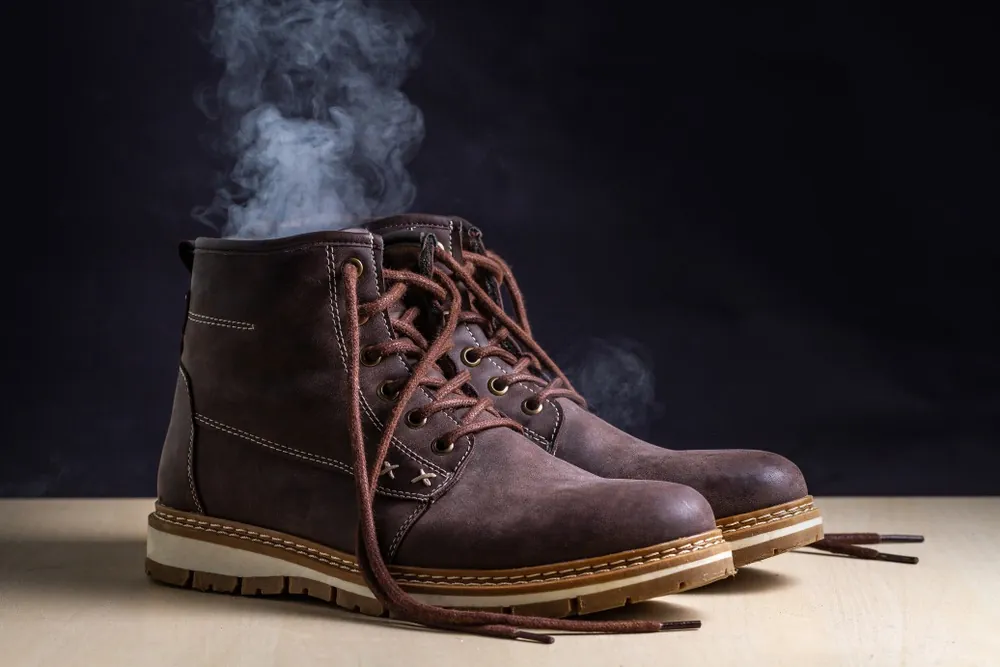Sweating is a physiological phenomenon whose main function is to regulate body temperature.
This sweating phenomenon occurs through our sweat glands, which are more numerous in the armpits, palms and feet.
Generally an ordinary occurrence, perspiration can sometimes be exacerbated when the situation does not warrant it.
This is what can be called hyperhidrosis, or excessive perspiration.
Although excessive foot perspiration is not associated with any health problem, it can still cause discomfort to those who experience it.
Let’s see what causes excessive foot perspiration and how to reduce it.
Identify excessive foot perspiration
Unlike sweating due to spontaneous factors such as hot flashes, plantar hyperhidrosis can be considered a chronic condition.
This usually appears at puberty and is likely to be due to a combination of environmental and psychological factors.
Quite easy to recognize, it can be identified by the following characteristics:
- Socks and shoes that barely stay dry
- Sweating of the feet that increases considerably in hot weather or during sports
- Unpleasant and strong odours from the soles of the feet (bromhidrosis)
- The skin of the feet tends to shrivel easily
Risky practices
Although this foot problem is easily identifiable, its exact causes are much more complex to determine.
When excessive sweating only affects the feet, it is easier to rule out a biological factor such as an endocrine disorder, which is more associated with generalized hyperhidrosis.
However, some factors can contribute to exacerbating already excessive foot perspiration.
These aggravating factors include:
- Inadequate foot hygiene
- Wearing closed shoes, which do not allow sufficient air circulation
- Regular practice of high-intensity sports activities
- Wearing socks made of nylon or wool
Consequences that are far from insignificant
In addition to the inconvenience caused, other more serious disorders may accompany excessive foot perspiration.
The complications below are likely to occur if excessive foot perspiration is not treated properly:
- A fungus of the foot such as athlete’s foot (tinea pedis)
- Bacterial infections
- Blisters at the heels or toes (phlyctenes)
- Plantar warts
- A fungal infection of the toenails, such as nail fungus.
These types of problems can be more easily avoided when you manage excessive foot perspiration as soon as possible.
Although this condition is sometimes annoying, it is important to consult a health professional like your podiatrist to prevent it from worsening.
Limit excessive foot perspiration on your own
Most of the time, hyperhidrosis and its symptoms can be controlled with home remedies.
The following methods are generally effective in reducing sweat produced by the feet:
- Wearing shoes adapted to the shape of your feet that provide good air circulation
- Wearing cotton socks
- Wearing different pairs of shoes and socks on a rotating basis
- Acquiring interchangeable soles with absorbent properties
Antiperspirants or antifungal powders will do the trick to reduce unpleasant foot odours.
Your podiatrist: a powerful ally to help you combat excessive foot perspiration
Of course, it is always possible that your hyperhidrosis may resist over-the-counter treatments.
If this is the case, a consultation at a podiatry clinic may be the only recourse available.
By analyzing your health history and lifestyle, the podiatrist is able to diagnose excessive foot perspiration.
Your podiatrist will then propose a personalized therapeutic plan to address excessive sweating and its complications.
Don’t be embarrassed by excessive foot perspiration that prevents you from seeing a podiatrist.

